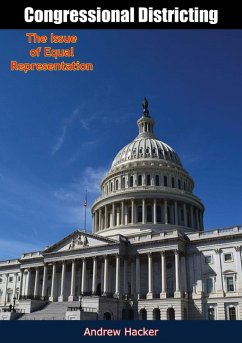THE SUPREME COURT'S decision in the case of Baker v. Carr, handed down in the spring of 1962, opened the way for reform of antiquated and inequitable patterns of representation in state legislatures. Over the ensuing twelve months, districting arrangements have been challenged in many states, and in several of them the legislatures have convened to draw up new districts which better reflect their actual population distribution.The Court's decision has raised a number of issues, including the question whether the drive for more equal representation in the state legislatures will affect the United States Congress. The Brookings Institution therefore asked Prof. Andrew Hacker, of the Depart. of Government, Cornell University, to prepare a problem paper that would examine the present congressional districts from the viewpoint of the problems that might arise in connection with reapportionment in the states. The objective was a brief informative analysis drawing largely on available materials, with an early deadline precluding much new research.Mr. Hacker's report approaches this subject from several vantage points. Among these are: the constitutional and historical background of congressional districting; state and judicial action as it applies to the Congress; reasons for the disproportion between votes cast and seats won; and the extent and consequences of inequalities in representation in the House of Representatives. Mr. Hacker indicates that the House does not give an equal voice to all of its constituents, and that prevailing inequities may become even more pronounced since the forces opposing reform feel strongly that justice is on their side, and the courts have yet to indicate how far they will go in applying the doctrine of equal representation enunciated in Baker v. Carr-or, indeed, whether they will apply it at all to congressional districts.-Robert Calkins
Dieser Download kann aus rechtlichen Gründen nur mit Rechnungsadresse in A, B, BG, CY, CZ, D, DK, EW, E, FIN, F, GR, HR, H, IRL, I, LT, L, LR, M, NL, PL, P, R, S, SLO, SK ausgeliefert werden.


